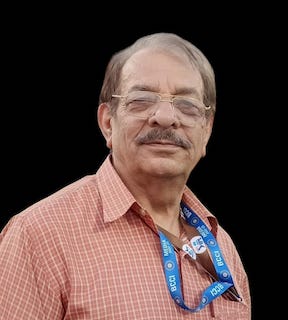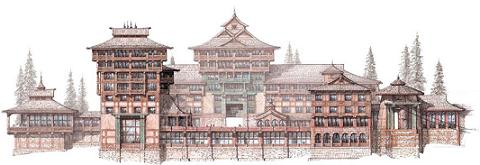Dharamshala: Dr Sangay, who has led the 150,000-odd Exiled Tibetan since 2011 when the Dalai Lama relinquished his political power, was sworn in, on Friday as the exiled Tibetans’ Prime Minister for the second consecutive term of five years, in presence of the Tibetan spiritual leader Dalai Lama at main Tibetan temple in McLeodganj Dharamshala.
Offering apologies to the moral shortcomings of the people witnessed during the election campaign, Tibetan PM said: “In the recent election of the Sikyong and Chithue, there have been a series of unfortunate events that went counter to the Tibetan tradition of humility and good conduct. This has greatly saddened and disappointed His Holiness the Dalai Lama. We ceaselessly beg His Holiness the Dalai Lama for his forgiveness. We all firmly pledge not to repeat these misconduct in future. Likewise, I strongly urge all Tibetans to avoid divisive affiliations and stand strong in unity and harmony.”
While addressing the gathering, Lobsang Sangay said, ‘The Middle Way Policy’ as envisioned by His Holiness the Dalai Lama and adopted unanimously as a policy by the Tibetan Parliament-in-Exile will continue to be the official policy.
“We are committed to make efforts towards the holding of talks between the envoys of His Holiness the Dalai Lama and the representatives of the Chinese government and resolve the issue of Tibet peacefully during His Holiness the Dalai Lama’s lifetime,” he said

Dr Lobsang Sangay was sworn-in for a second term as Sikyong in front of His Holiness the Dalai Lama at the oath-taking ceremony today at main temple Tsuglagkhang. The ceremony was attended by thousands of Tibetans and Tibet supporters including Shri R K Khrimey, MLA and Advisor to the chief minister of Arunachal Pradesh.
As the ceremony began, Sikyong Dr Lobsang Sangay prostrated before Dalai Lama and presented a ceremonial Tibetan scarf as a token of gratitude for His leadership and guidance over the last 50 years.
Several monks then recited a prayer of blessing to inaugurate the auspicious event, followed by serving of traditional Tibetan tea and sweetened rice to the gathering. Mr Kargyu Dhondup, the Chief Justice Commissioner of the Tibetan Supreme Justice Commission, then rose up to administer the oath of office to the Sikyong elect.
“Today, on this occasion of my swearing-in for the second term of Sikyong, we are all blessed with the presence of His Holiness the Dalai Lama gracing the ceremony as the Chief Guest. With many prostrations, I express my eternal gratitude to His Holiness the Dalai Lama for accepting our humble request. His Holiness has assured us of his long and healthy life. The Kashag pledges to strive fully in realizing the aspirations of the Tibetan people in his lifetime,” Sikyong began.
“Similarly, I would also like to thank all Tibetans in exile for giving me the opportunity to serve for a second term. I swear to serve to my fullest capacity with all sincerity. All Tibetans irrespective of provincial, regional or religious biases share the same aspiration. With this spirit of our oneness as brothers and sisters, I hope that Tibetans in and outside Tibet will continue to extend their support and solidarity in my effort,” Sikyong said.
He also lauded the sacrifices of the self-immolators and the Tibetan inside Tibet, expressing his solidarity and assuring the Central Tibetan Administration’s committed efforts to resolve the issue through the Middle Way Approach.
His Holiness the Dalai Lama, in his keynote address, spoke about the rich cultural and religious traditions of Tibet and the need for a holistic education of Tibetan children.
“Tibet is called the roof of the world. Similarly, the rich Buddhist culture and tradition of Tibet is also one of the best traditions in the world,” His Holiness said, explaining that his statement is not borne out of loyalty but through reason.
“Over the years I have met numerous people, including scholars, scientists, politicians and spiritual leaders. In my interaction with these people, I have come to realise that the Tibetan Buddhist tradition, derived from the Nalanda tradition of India, is among the best, primarily because it is based in scientific analysis and logical study.”
“Many Buddhist traditions trace their root to Nalanda. However, Tibetan Buddhism seems the only one, which contains the purest essence of the tradition. It is truly a universal treasure, which the Tibetan people have preserved for centuries,” His Holiness said.
Photo Courtesy: Tibetan Government in Exile

Arvind Sharma is an award winning bi-lingual journalist with more than 20 years of experience.
He has worked with Divya Himachal, Dainik Jagran, Dainik Bhasker, Vir Partap, Ajit and PTI.
In 2010, he was conferred the Himachal Kesri journalism award. He reports on the Tibetan Government in Exile, politics, sports, tourism and other topics. He lives in Dharamshala.



